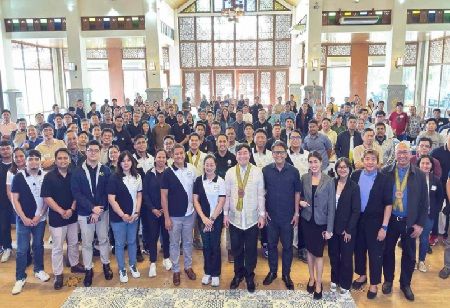-
- The Energy Regulatory Commission (ERC) launched its CREST program to enhance the technical skills and regulatory compliance of distribution utilities across the Philippines.
- The two-day training in Batangas included lectures, hands-on workshops, and sessions on updates to the Philippine Electrical Code, metering standards, net-metering, and renewable energy integration.
- CREST aims to strengthen consumer protection, operational efficiency, and industry transparency by fostering technical competence, collaboration, and adherence to regulatory standards.
The Energy Regulatory Commission (ERC) introduced its Continuing Regulatory Education for Stakeholders(CREST) program, an all-new program aimed at enhancing the technical competence and regulatory adherence of distribution utilities (DUs) nationwide. The two-day training course, which commenced on October 7, 2025, at Club Balai Isabel in Talisay, Batangas, bears the title theme 'Empowerment through Regulation and Compliance'. This captures the ERC's continued focus on encouraging precision, dependability, and consumer protection in the energy industry by empowering technical staff with the newest regulatory and engineering requirements.
ERC Commissioner Paris G. Real, who facilitated the opening ceremony, highlighted collaboration and trust between the ERC and the regulated utilities. In his statement, he reinforced that the consumer remains central in the power sector, referring to them as 'the backbone of the power sector the lifeblood of every DU'. He appealed to participants to exercise regulatory discipline and put consumer welfare at the top while making sure that investor confidence in the sector remains robust.
Training included an in-depth series of lectures and hands-on workshops conducted by ERC's technical specialists coming from different departments, namely the Consumer Affairs Service, Financial and Administrative Service, and Market Operations Service. To supplement these activities, the program also invited resource speakers from the Institute of Integrated Electrical Engineers of the Philippines, Inc. (IIEE), thereby ensuring the technical caliber as well as relevance to industry conditions.
The session members examined a broad spectrum of issues pertinent to contemporary energy distribution, including the Philippine Electrical Code updates, standards in metering, billing and revenue management, and regulations on net-metering and integrating renewable energy. Meter shop accreditation standards and the process of in-service testing were also addressed during the sessions, representing issues vital to the efficiency of operations, transparency, and building trust among the populace.
Also Read: Al Tamimi & Company Host Legal Learning Sessions for Sorbonne Students
One of the key highlights of day one was a practical workshop aimed at crafting In-Service Testing Plans. This activity promoted active collaboration among representatives from various distribution utilities and accredited meter shops and encouraged an atmosphere of collaborative learning and peer-to-peer sharing of expertise. This hands-on participation enabled participants to relate theoretical principles to real-life application, supporting in turn the program's focus on actionable competencies.
By investing in the professional development of personnel in the country's energy sector workforce through CREST, the ERC seeks to advance beyond conventional regulation. By boosting the technical competence of DUs as well as encouraging steady adherence to regulatory guidelines, the Commission hopes to facilitate effective functioning and optimization of the country's power distribution network as well as its transparency and consumer orientation.
In a statement, the ERC reiterated that the CREST program embodies its wider purpose of upholding good governance principles in the energy industry. The Commission considers ongoing education as an essential mechanism for developing accountability and upholding high technical standards for all utilities. As the energy landscape continues to shift in the face of accelerating technology and regulatory evolution, initiatives such as CREST will increasingly be called upon to ensure industry professionals are equipped to address pending challenges with confidence and competence.
Finally, the launch of CREST represents another milestone in the ERC's continued drive towards enhancing the country's energy regulation framework. In endowing the utilities with competence through training and partnership, the Commission enforces its vision of a technically grounded, consumer-centered, and regulation-compliant power industry one that responds to public interest and serves national development objectives with integrity and excellence.
🍪 Do you like Cookies?
We use cookies to ensure you get the best experience on our website. Read more...

